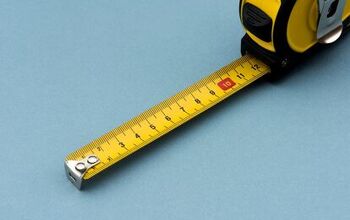Stop Yourself From Making These House Hunting Mistakes

Whether it’s your first or not, looking for a house requires a substantial amount of effort. You’re trying to find a place you like, preferably in a location you want and for a price you can afford. When facing such a big decision, it’s easy to get sidetracked, cut corners, or give in to emotions as stress mounts. But if you’re not careful, you’ll fall victim to house-hunting mistakes that can lead to buyer’s remorse or not purchasing a home at all.
It’s essential to check your credit and get a mortgage preapproval letter before you start house hunting. Don’t let your lender dictate what you can afford and avoid draining your savings to make your down payment. Lying to your lender, not using a real estate agent, and waiving contingencies are other big no-nos when looking for a home.
The home-buying process begins long before you start looking at houses. If you jump into your home search on a whim or rush the process, you’re more likely to make one of these house-hunting mistakes.
1. You Skip A Credit Check
Don’t wait until you meet with lenders to learn about your credit score. Several months before you start house hunting, pull a copy of your credit report and check out your score. You may even want to do this one year ahead of your search.
If you discover fraud or mistakes on your credit report, you’ll have time to fix them. Likewise, if your credit score is too low, you’ll have ample time to raise it.
You’re eligible for a free annual copy of your credit report from each of the three major credit-reporting agencies (Experian, Equifax, and Transunion). You can get your free report via annualcreditreport.com.
2. You Don’t Hire A Real Estate Agent
Buying a house is a lot of work and includes plenty of moving parts. Trying to go through the process solo and handle everything by yourself is daunting. Plus, all of the paperwork and legalities can be confusing.
When you’re getting close to beginning your home search, start forming your short list of agents. Working with a qualified professional helps the entire house-hunting process go smoothly and reduces stress.
3. You Don’t Bother Getting Pre-Approved
There are so many online tools that allow you to input your numbers and get an idea of how much home you can afford. But these are meant to give you a ballpark range of home prices to point you in the right direction. But learning that you could qualify for a certain loan doesn’t mean you’ll get it.
Before an agent agrees to help you find a house, they’ll likely want to see a pre-approval letter. This letter is one you get from a lender after they meet with you and verify your actual numbers. The key word here is verify. When the agent sees this letter, they know that the number in it is what the lender has agreed to lend you for a mortgage.
However, once you get a pre-approval letter, you’re not home-free. These letters usually expire after a short period. It’s your job to know when your letter expires in case you need to get a new one. Also, if anything changes to affect how much home you can afford (i.e., interest rates), you may want to get a new letter.
4. You Base Your Budget On Your Lender
When you apply for a mortgage loan, the lender considers your income, employment, your debt, and your credit score. Depending on these primary factors, they decide how much money they’re willing to lend you and at which interest rate.
However, lenders don’t consider your lifestyle, like how often you like to go out to eat or that your kids are in private school. Therefore, what they say you can afford and what you can actually afford can differ dramatically.
Instead, review your budget and decide what monthly payment is comfortable for you. Let this dictate the price range of homes you view. Get a pre-approval letter for this amount, not the maximum amount your lender is willing to let you borrow.
5. You Stop Searching Too Soon
Another mistake people make when searching for a home is stopping once they put an offer on a house. Between the time you make an offer and you close on the property, a lot of things can happen.
If the deal falls through, you’ve wasted days, weeks, maybe even months of valuable house-hunting time. Until the deal is done, keep looking at houses to have potential backup plans.
6. You Use All Your Savings On Your Down Payment
If you spend all your money on the down payment, you have nothing left for closing costs, repairs, furniture, etc. Typically, closing costs run between 1% and 2% of the loan amount. It’s also wise to have some money on hand after your purchase to help set up your new place.
Keep in mind you don’t need to put 20% down, although that’s the most popular recommendation. Various loans allow you to put less down and may be a better fit for your budget.
7. You Let Emotions Guide You
Buying a house gets emotional, but keeping your wits about you is essential. If you give in to your emotions, you could buy more home than you can afford or find yourself in an unfortunate situation.
For example, to land the house of your dreams, you waive the home inspection contingency or the appraisal. In doing so, you end up with a mess on your hands post-purchase.
Or maybe you realize you’re not ready to buy but fall in love with a house. Your friends tell you you’ll never get a chance like this again. You feel the pressure, and the next thing you know, you’re the homeowner.
8. You Make Insurance An Afterthought
Your house is likely the biggest purchase you’ll ever make and it’s important to protect it. Insurance helps you do this. Plus, when you get a mortgage, your lender will want to see proof of insurance before they give you any money.
But if you wait too long to find insurance, you could limit your options, resulting in a policy that’s too expensive or offers minimal coverage. Give yourself ample time to shop around for insurance and compare rates.
9. You Hold Out For The Perfect House
If this is your first home, you’ll likely need to compromise on several factors if you want to buy. But even if you’re looking for your second, third, or fourth home, it’s unlikely you’ll find a house that checks off every single box. Inevitably, when you buy a home, you’ll need to change something, even if it’s as simple as paint colors.
The point is, if you don’t consider any house unless it meets every single item on your wish list, you’ll probably never buy a house. Instead, know what your absolute must-haves are, and be willing to compromise on the less-important points to broaden your list of options.
Conquer House Hunting Mistakes To Find Your Next Home
The best way to avoid making house-hunting mistakes is to give yourself enough time to work through the process and hire an agent. Know your numbers and listen to your head more than your heart (and don’t give in to outside pressures). If you feel overwhelmed or unsure about purchasing a home, it may not be the right time to buy.
Related Guides:

Stacy Randall is a wife, mother, and freelance writer from NOLA that has always had a love for DIY projects, home organization, and making spaces beautiful. Together with her husband, she has been spending the last several years lovingly renovating her grandparent's former home, making it their own and learning a lot about life along the way.
More by Stacy Randall



























